Choosing a doula can be one of the most significant decisions an expectant parent makes. When thoughtfully selected, doulas provide invaluable support that can profoundly impact both the birthing experience and the postpartum transition. High-quality doula services deliver not only comfort and education but also trusted advocacy throughout labor, delivery, and the often-overlooked fourth trimester. However, as the popularity and visibility of doula services grow, it becomes increasingly important for expecting families to distinguish professionalism and expertise from benign enthusiasm or, at times, problematic practices.
The purpose of this article is twofold. First, it seeks to equip new moms and expecting parents with an informed, scholarly understanding of what constitutes quality in doula care. Second, it offers an analytical framework for identifying warning signs that may indicate a misalignment of expectations, qualifications, or values. Drawing upon evidence from the doula field, as well as the collective expertise of Northeast Doulas in Greenwich, CT, we provide this critical guide to the three most salient red flags to watch for when seeking a postpartum doula, birth doula, or comprehensive doula services.
Doula Services in Historical Context
Though the contemporary concept of the doula is often presented as a recent phenomenon, trained birth companions existed in various forms across cultures and centuries. Anthropological studies have documented the presence of experienced women who offered physical, emotional, and informational support during childbirth as early as the ancient Greeks. However, the formalized profession emerged in the late 20th century as part of a reevaluation of obstetric care, especially in Western healthcare systems. Central to this movement was the recognition that birth is not merely a medical event but a profoundly human, psychological, and often communal process.
Today, birth doulas and postpartum doulas are integral members of multidisciplinary birth teams, working alongside midwives, physicians, and lactation consultants to address the family’s emotional and practical needs. While certification standards exist, the doula industry remains only loosely regulated, especially in comparison to obstetrics or nursing. The resultant variability contributes to a wide spectrum of competence and approach within the field.
What Defining Qualities Should a Doula Exhibit?
 Before outlining the principal red flags, it is prudent to clarify the core attributes that define exemplary doula services:
Before outlining the principal red flags, it is prudent to clarify the core attributes that define exemplary doula services:
- Professionalism and Training
Doulas should possess verifiable credentials from recognized organizations (e.g., DONA International, CAPPA), and engage in continuing education.
- Evidence-Based Practice
Quality doulas anchor their support in the latest research and best practices, eschewing personal dogma for scientifically validated methods.
- Transparent Communication
Clearly defined boundaries, open dialogue, and mutual respect set the foundation for productive collaboration.
- Ethical and Nonjudgmental Support
Exceptional doulas center the family’s values and choices, fostering autonomy throughout pregnancy, birth, and postpartum.
Unfortunately, not every doula adheres to these standards. To protect yourself and your family, keep these three warning signs in mind.
Red Flag #1: Unverifiable or Outdated Credentials
While certification is not a legal requirement in every jurisdiction, credible postpartum doula and birth doula candidates should willingly provide documentation of their education and, where applicable, professional affiliation. An unwillingness to do so may signal a lack of formal training, or, equally concerning, a detachment from current professional norms.
The Importance of Up-to-Date Certification
The field of maternal and infant health evolves continuously. New research on postpartum mood disorders, lactation, and birth practices regularly reshapes the parameters of best care. Active engagement in ongoing education demonstrates not only competence but also respect for the family’s evolving needs.
Actionable Advice:
Always request documentation of training, membership in professional bodies, and evidence of recent continuing education. Northeast Doulas, for example, practices full transparency regarding credentials and ongoing staff development.
Red Flag #2: Rigid Philosophies and Judgmental Approaches
Any doula whose approach is predicated on inflexible ideology rather than evidence-based support should be regarded with caution. While personal passion can benefit clients, there is a demonstrable risk when a doula prioritizes her beliefs above the client’s values or needs. This is particularly acute in contexts where medical intervention may become necessary (e.g., unplanned cesarean sections or exclusive formula feeding).
Consequences of Ideological Rigidity
A rigid philosophy can erode the doula-client relationship, marginalize parent autonomy, and introduce guilt or self-doubt during an already vulnerable period. Scholarly analyses of doula support underscore the imperative for unconditional, nonjudgmental guidance.
Actionable Advice:
During initial consultations, carefully assess a doula’s willingness to support a range of choices and responses to scenarios diverging from her stated preferences. Seek a postpartum doula or birth doula who willingly discusses all birth and feeding options with clinical neutrality.
Red Flag #3: Lack of Clear Boundaries and Contractual Clarity
Professionalism in doula services cannot exist without well-defined terms of engagement. Serious red flags emerge when a doula is unable or unwilling to clarify her role, availability, limitations, and remuneration. The absence of a written contract can expose both parties to unanticipated expectations and, in some cases, legal vulnerabilities.
Why Contracts Matter
Written agreements provide an objective foundation for service delivery, protect your financial interests, and outline recourse in case of dispute. Contractual clarity should cover scope of support (in-person, virtual, or hybrid), emergency protocols, cancellation policies, and confidentiality expectations.
Actionable Advice:
Only proceed with doula services that provide comprehensive documentation specifying hours of support, payment terms, backup coverage (if applicable), and mechanisms for addressing concerns.
Evaluating Northeast Doulas Services
 At Northeast Doulas, our commitment to rigorous certification, compassion free from dogma, and transparent contracts has distinguished our doula services throughout the Greenwich, CT region. We invite you to review our staff credentials, educational philosophy, and service agreements, and to schedule a consultation where your questions and concerns will be not only heard but respected.
At Northeast Doulas, our commitment to rigorous certification, compassion free from dogma, and transparent contracts has distinguished our doula services throughout the Greenwich, CT region. We invite you to review our staff credentials, educational philosophy, and service agreements, and to schedule a consultation where your questions and concerns will be not only heard but respected.
Moving Forward with Confidence
The decision to hire a doula is deeply personal and consequential. For new moms and expecting parents, vigilance against red flags is a necessary safeguard against disappointment and risk. By insisting on up-to-date credentials, expecting nonjudgmental support, and requiring written agreements, families secure a partnership defined by respect, professionalism, and evidence-based care.
For more information about Northeast Doulas, to schedule a consultation, or to learn about the benefits of postpartum doula or birth doula services, contact us today. We are honored to support you with informed, compassionate care at every stage of your parenting journey.



